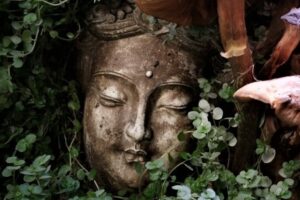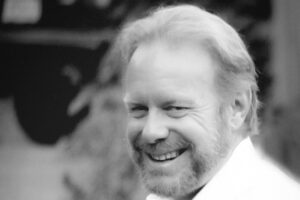Inspiration from great thinkers and writers
Here are wise words to inspire and uplift clients on their journey of discovering, healing and growing.
“In the beginning was the Word” (opening of John’s gospel) implies that well-chosen words have great creative power. However, when words are meant to hurt or are misinterpreted as such, conflict arises. The late lamented Dr. Marshall B. Rosenberg, founder of Non-Violent (or Compassionate) Communication, titled one of his most influential books ‘Speak Peace in a World of Conflict: What You Say Next Will Change Your World‘. May the words below bring peace and understanding to your inner world!
Buddha, from the Dhammapada
The thought manifests the word;
The word manifests the deed;
The deed develops into habit;
And habit hardens into character,
So watch the thought and its ways with care,
And let them spring forth from love
Born out of compassion for all beings.
As the shadow follows the body, as we think, so we become.

Socrates (son of a midwife, c. 470 – 399 BC)
Those who seek my company gain an astonishing amount, both in their own eyes and in those of others. Yet they never learned anything from me, let that be clear. They themselves gave birth to the precious insights from which they benefit, but I take care of the midwifery.

Plato (devoted follower of Socrates, c. 428 – 348 BC)
Opinion is really the lowest form of human knowledge. It requires no accountability, no understanding. The highest form of knowledge is empathy, for it requires us to suspend our egos and live in another’s world.

Arabic proverb
Write the hurt that is done to you in sand.
Carve the good that comes your way in stone.

Jelaluddin Rumi (1207-1273)
Persian jurist, theologian, philosopher, Sufi mystic and poet.
The Guest House
This being human is a guest house.
Every morning a new arrival
— a joy, a depression, a meanness,
some momentary awareness —
comes as an unexpected visitor.
Welcome and entertain them all!
Even if they are a crowd of sorrows,
who violently sweep your house empty of its furniture,
still treat each guest honourably.
He may be clearing you out for some new delight.
The dark thought, the shame, the malice,
meet them at the door laughing, and invite them in.
Be grateful for whoever comes,
because each has been sent as a guide from beyond.
The Field
Out beyond ideas of wrongdoing and rightdoing,
there is a field. I will meet you there.
When the soul lies down in that grass,
the world is too full to talk about.
Ideas, language, even the phrase ‘each other’, make no sense.

Shams-i-Tabrizi (1185–1248)
Persian basket weaver and Sufi Muslim who, according to tradition, became Rumi’s revered spiritual teacher for a period of 40 days in seclusion in Konya.
The Great Secret
When I run after what I think I want,
my days are a furnace of distress and anxiety;
If I sit in my own place of patience,
what I need flows to me, and without any pain.
From this I understand that what I want also wants me,
is looking for me and attracting me.
There is a great secret in this
for anyone who can grasp it.
Wayne Muller
Minister, therapist, mentor, consultant, community advocate and public speaker who has spent over three decades working with people suffering abuse, alcoholism, poverty, illness and loss.
from Legacy of the Heart: The Spiritual Advantages of a Painful Childhood (1993).
Our own wounds can be vehicles for exploring our essential nature, revealing the deepest textures of our heart and soul, if only we will sit with them, open ourselves to the pain … Without holding back, without blame.

Marianne Williamson
from ‘A Return to Love’
(often incorrectly attributed to Nelson Mandela.)
Our deepest fear is not that we are inadequate. Our deepest fear is that we are powerful beyond measure. It’s our light, not the darkness, that most frightens us. We ask ourselves, who am I to be brilliant, gorgeous, talented and fabulous? Actually, who are you not to be? You are a child of God. Your playing small doesn’t serve the world. There’s nothing enlightened about shrinking so that other people won’t feel insecure around you. We are born to make manifest the glory of God that is within us. It’s not in some of us, it’s in everyone. And as we let our own light shine, we unconsciously give other people permission to do the same. As we are liberated from our fear, our presence automatically liberates others.

Carlos Castaneda (1925-1998) on the path which has heart
from The Teachings of Don Juan (1968)
Ask yourself, and yourself alone, one question. Does this path have a heart?
If it does, the path is good; if it doesn’t, the path is of no use.
Both paths lead nowhere, but one has a heart; the other doesn’t.
One makes for a joyful journey; as long as you follow it, you are one with it.
The other will make you curse your life.
One makes you strong; the other weakens you.

Marilyn Ferguson (1938-2008)
Ultimately we know deeply that the other side of every fear is a freedom.
No one can persuade another to change. Each of us guards a gate of change that can only be opened from the inside. We cannot open the gate of another, either by argument or emotional appeal.

The battle between two wolves
An old Cherokee told his grandson: “My son, there is a battle between two wolves inside us all. One is Evil: it is anger, jealousy, greed, resentment, inferiority, lies and ego. The other is Good: it is joy, peace, love, hope, humility, kindness, empathy and truth.”
The boy thought about it, and asked: “Grandfather, which wolf wins?”
And the grandfather quietly replied: “The one you feed.”

Anne Morris on commitment
The irony of commitment is that it’s deeply liberating — in work, in play, in love. The act frees you from the tyranny of your internal critic, from the fear that likes to dress itself up and parade around as rational hesitation. To commit is to remove your head as the barrier to your life.

Why Worry? (anon.)
In life there are only two things to worry about: whether you are well, or whether you are sick.
Now if you are well, you have nothing to worry about. And if you are sick, you only have two things to worry about: whether you get better, or whether you die.
If you get better, you have nothing to worry about. And if you die, you only have two things to worry about: whether you go to heaven, or whether you go to hell.
Now if you go to heaven, you have nothing to worry about. And if you go to hell, you’ll be so busy shaking hands with your old friends that you won’t have time to worry.
So why worry?

Eugene T. Gendlin on development
from Focusing-oriented psychotherapy: A manual of the experiential method (1996)
One develops when the desire to live and do things stirs deep down, when one’s own hopes and desires stir, when one’s own perceptions and evaluations carry a new sureness, when the capacity to stand one’s ground increases, and when one can consider others and their needs. The last item here is not contradictory to the others. One comes to feel one’s separate existence solidly enough to want to be close to others as they really are. It is development when one is drawn to something that is directly interesting, and when one wants to play. It is development when something stirs inside that has long been immobile and silent, cramped and almost dumb, and when life’s energy flows in a new way.

Mark Twain (1835-1910) on disappointment
Twenty years from now you will be more disappointed by the things that you didn’t do than by the ones you did do.
So throw off the bowlines. Sail away.
Catch the trade winds in your sails.
Explore, dream, discover

The 14th Dalai Lama of Tibet
If you do not have the capacity to love yourself, then there is simply no basis on which to build a sense of caring toward others. Love for yourself does not mean that you are indebted to yourself. Rather, the capacity to love oneself or be kind to oneself should be based on a very fundamental fact of human existence: that we all have a natural tendency to desire happiness and avoid suffering. Once this basis exists in relation to oneself, one can extend it to other sentient beings.

Mahatma Gandhi (1869-1948)
Happiness is when what you think, what you say, and what you do are in harmony.
You must not lose faith in humanity. Humanity is an ocean; if a few drops of the ocean are dirty, the ocean does not become dirty.
As human beings, our greatness lies not so much in being able to remake the world […] as in being able to remake ourselves.
Be the change you want to see in the world.

Thomas a Kempis (1380-1471)
Be not angry that you cannot make others as you wish them to be, since you cannot make yourself as you wish to be.
Who has a harder fight than he who is striving to overcome himself?
First keep the peace within yourself, then you can also bring peace to others.


